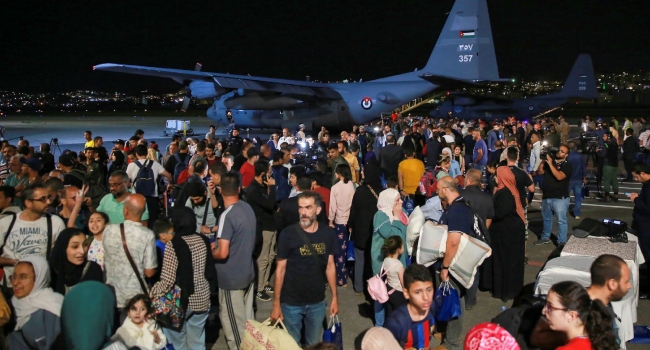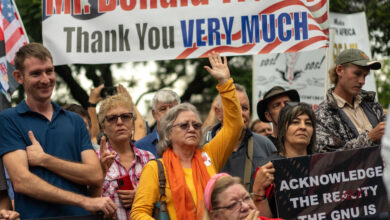Foreigners Airlifted Out of Sudan

AS foreign governments airlifted hundreds of their diplomats and other citizens to safety, Sudanese on Monday desperately sought ways to escape the chaos, fearing that the country’s two rival generals would escalate their all-out battle for power once evacuations were completed.
The evacuations were a dramatic operation. In convoys, foreign diplomats, workers and families made their way past combatants at tense front lines in the capital of Khartoum to reach extraction points — or even drove hundreds of miles to the country’s east coast.
A stream of European and Mideast military aircraft flew in all day Sunday, through the night and into Monday, to ferry them out. France and Germany said more flights were possible if security conditions permitted.
But for many Sudanese, the airlift was a terrifying sign that international powers, after failing repeatedly to broker cease-fires, only expect a worsening of the fighting that has pushed the population into disaster. During nine days of warfare in Khartoum and other cities, millions have been trapped in their homes by explosions, gunfire and armed fighters looting in the streets while food supplies run out and hospitals near collapse.
Many Sudanese, along with Egyptians and other foreigners who could not get on flights, risked the long and dangerous drive to the northern border into Egypt.
“We travelled 15 hours on land at our own risk,” Suliman al-Kouni, an Egyptian student, said at the Arqin border crossing with Egypt. Buses lined up at the remote desert crossing carrying hundreds of people, he said. Al-Kouni was among dozens of Egyptian students making the trek. “But many of our friends are still trapped in Sudan,” he said.
Amani el-Taweel, an Egyptian expert on Africa, warned of “horrific suffering” for Sudanese unable to leave.
While Sudanese who can afford it make their way to Egypt or Chad, the poor “will suffer greatly as they will have no access to aid or food,” said el-Taweel, with Egypt’s Al-Ahram Center for Political and Strategic Studies. Humanitarian aid can no longer reach Sudanese because of the clashes, and once evacuations are complete, “warring parties will not heed any calls for a truce or a cease-fire,” she said.
Fighting raged in Khartoum and Omdurman, a city across the Nile River, residents said, despite a hoped-for cease-fire to coincide with the three-day Muslim holiday of Eid al-Fitr. Heavy gunfire and thundering explosions rocked the city.
Over 420 people, including 264 civilians, have been killed and over 3,700 wounded in the fighting between the Sudanese armed forces and the powerful paramilitary group known as the Rapid Support Forces, or RSF.





